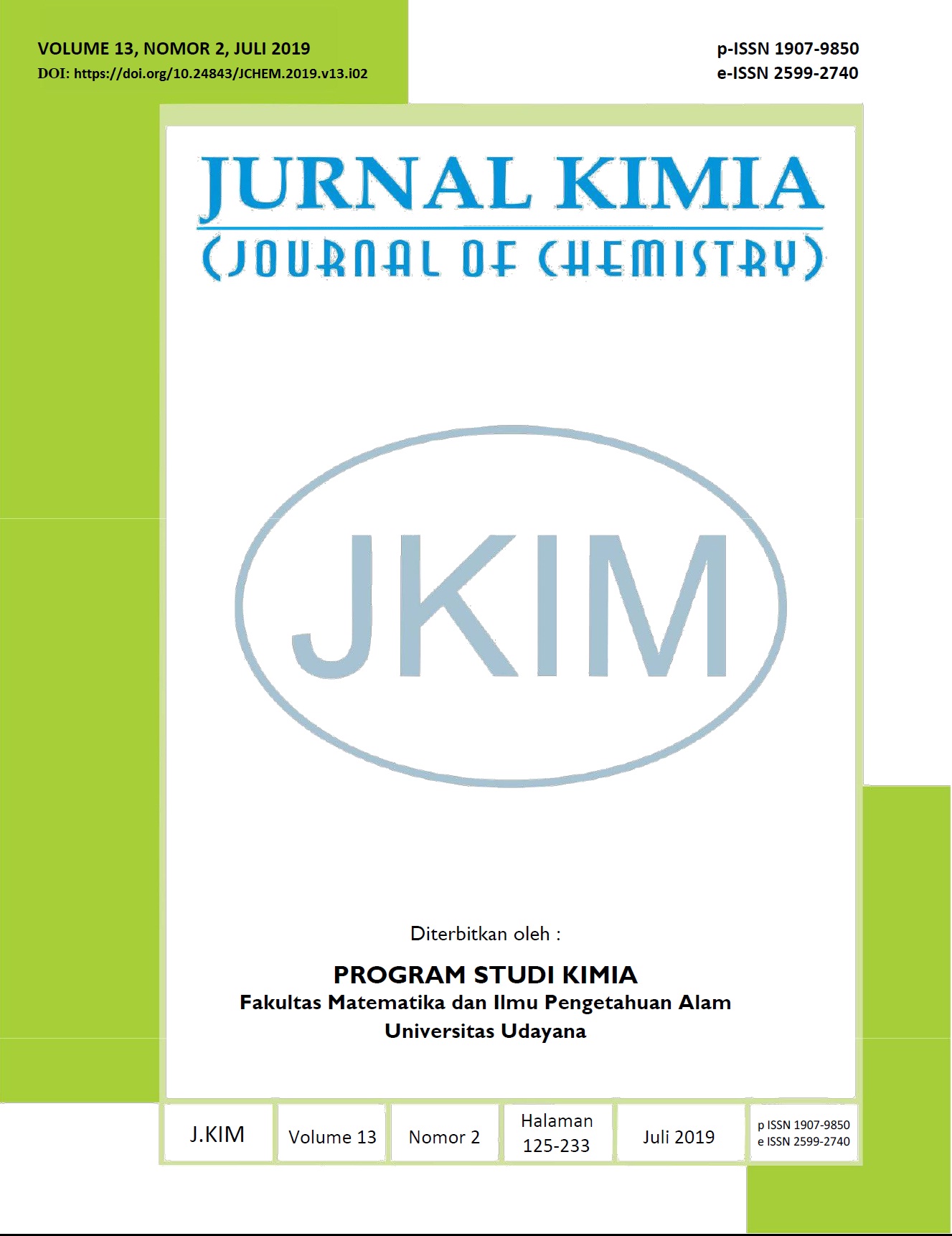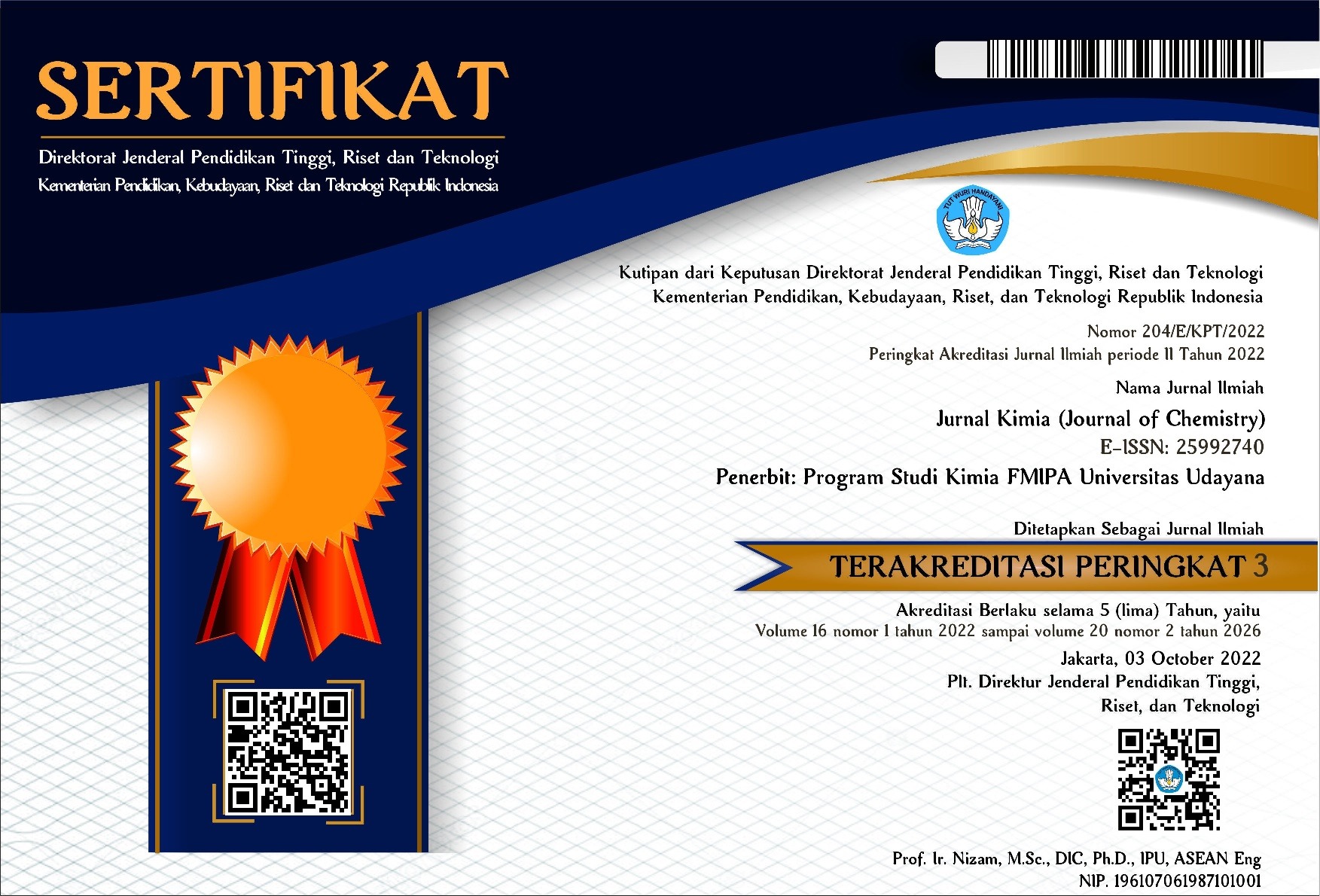MOLECULAR DOCKING TERPINEN-4-OL SEBAGAI ANTIINFLAMASI PADA ATEROSKLEROSIS SECARA IN SILICO
Abstract
Atherosclerosis is a chronic inflammatory disease that begins with endothelial dysfunction, it caused fat accumulation and plaque growth in the inner arteries walls. Endothelial dysfunction will activate the Mitogen Activated Protein Kinase (MAPK) pathway involving ERK1, ERK2, JNK1, JNK2, and p38MAPK proteins, as well as the Nuclear Factor Kappa B (NF-kB) pathway involving IKK proteins. Terpinen-4-ol is constituent found in the bangle rhizome. The purpose of this study were to determine the affinity and mechanisms of terpinen-4-ol against ERK1, ERK2, JNK1, JNK2, and p38MAPK proteins as anti-inflammatory in atherosclerosis performed using molecular docking method. The study was conducted exploratively with several steps such as preparation and optimization of terpinen-4-ol structure, preparation of 3D ERK1, ERK2, JNK1, JNK2, and p38MAPK proteins, validation method of molecular docking, and docking terpinen-4-ol in these proteins. The docking result are assessed from the binding energy and hydrogen bonds formed between terpinen-4-ol and proteins. The smaller value of binding energy terpinen-4-ol with target proteins showed the complex that form more stable. The result showed that terpinen-4-ol and has activity in inhibiting the inflammatory process because it is able to disturb ERK1, ERK2, JNK1, JNK2, and p38MAPK proteins with respective bond energy values -5,12; -5,24; -5,08; -5,88; and -4,99 Kcal/mol. The molecular mechanism in inhibiting the activity of ERK1, ERK2, JNK1, JNK2, and p38MAPK proteins is through the formation of hydrogen bonds in these proteins. These results show that terpinen-4-ol have the potential to inhibit inflammatory process and the formation of atherosclerotic plaque can be obstructed.
Keywords : atherosclerosis, terpinen-4-ol, molecular docking, in silico
Downloads

This work is licensed under a Creative Commons Attribution 4.0 International License






